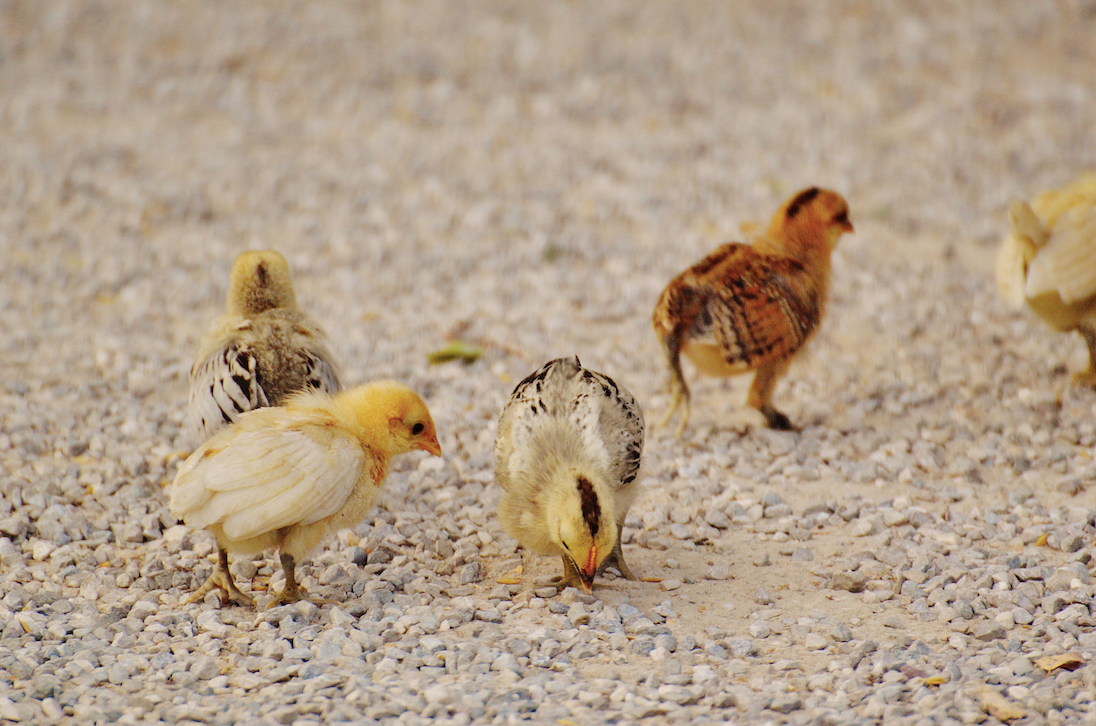Tips for a Stress-Free Spring with Your Flock


Your chickens are probably enjoying the sunshine, green grass and proliferation of bugs to snack on. We have put together six tips to make sure this season is stress free for you and your backyard chickens.
Predator Protection
You may not even be aware of potential predators that could wreak havoc on your flock. If they have not yet discovered your chickens, it is only a matter of time. Keep digging predators at bay by burying wire fencing at least 18 to 24 inches deep. Make sure your coop is covered with heavy-duty, double-knotted, one-inch netting to shut out predators from above.
Keep Rodents Away
Mice and rats are the two most common rodents you may see near your coop—which is a problem, since rodents carry diseases that can infect your chickens and eggs. You can deter rodents by collecting eggs twice a day, keep brooding chicks in a rodent-proof coop, count chicks daily, store your feed in a metal container with a tight-fitting lid, hang chicken feeders and hang your feeder over a fine wire mesh stand with a collection tray underneath.
Watch for Worms
All chickens have worms to some extent. While a normal load of worms are usually not harmful to your flock, a worm infestation can cause reduced egg production, emaciation, immunosuppression and/or suffocation. You can prevent worms in your backyard chickens by regularly cleaning your coop and the area around it, raising chickens on land that has not previously had chickens on it, practicing good biosecurity habits and/or medically treating your flock.
Prepare for summer with tips to keep your backyard chickens cool!
Brooding Babies
If you are brooding baby chicks this this season, you want to set them up for a long, productive, and healthy life. Make sure your brooder has plenty of bedding, a waterer, feeder and heat source for chicks, and is big enough that baby chicks can move away from the heat source if they want. Keep the area under the heat source in the brooder at 95 degrees Fahrenheit for the first week and reduce the temperature by 5 degrees each week until the chicks have all their feathers. Many backyard chicken owners use either pine or aspen shavings for bedding.
Plenty of Space
Chickens should have adequate square footage both in the coop and run areas. How much room you will need depends on the breed of chicken. For average sized birds, two square feet per bird is adequate, while bantam breeds only need 1.5 square feet per bird. Large breeds need three to four square feet per bird. Also plan to have one nesting box for every four hens in the coop.
Basis of Life
Water is an essential nutrient for chickens. Offering nipple drinkers for your chickens will help keep rodents away and feces and shavings out of your flock’s water source. Hanging a waterer or mounting it to the coop wall can help maximize floor space in your coop. Placing marbles in the bottom of your waterer entices baby chicks to drink while keeping them from getting into the water and averting drowning.
This season is a great time to enjoy watching your chickens. To keep your chickens healthy and thriving, subscribe to Chicken Whisperer Magazine.
Tags:Plain Talk

Chicken Whisperer is part of the Catalyst Communications Network publication family.












